The Center for Holocaust and Genocide Studies and the Department of History, are pleased to announce the Bernard and Fern Badzin Graduate Fellowship in Holocaust and Genocide Studies has been awarded to Wahuta Siguru.
Siguru's research interests are in the Sociology of Media, Genocide, Mass Violence and Atrocities (specifically on issues of representation of conflicts in Africa such as Darfur and Rwanda), Collective Memory, and perhaps somewhat tangentially Democracy and Development in Africa.
Siguru was born and raised in Mombasa, Kenya and attended Moi University Law School from 2003-2007 and moved to Minnesota in 2007 completing a double major in Sociology and Global Studies at the University of Minnesota in 2010.
He spent a year doing research with Professor Tade Okediji, (University of Minnesota Applied Economics) on ethnicity and ethnic group formation in Africa, which resulted in a co-authored paper presented at the 2013 Africa Conference in Austin Texas. The paper will also be presented at the African Studies Association Conference in Baltimore Maryland later this year.
Siguru began coursework towards a PhD in Sociology at the University of Minnesota in 2011 and is currently analyzing data collected in the summer of 2012 in Johannesburg and Nairobi which has resulted in a co-authored paper with Professor Joachim Savelsberg on Representations of Darfur in Western and African Media; this will be presented at the 2013 American Sociological Association Conference in New York.
The Badzin Fellowship pays a living stipend of $18,000, and the cost of tuition, mandatory fees and health insurance. An applicant must be a current student in a Ph.D. program in the College of Liberal Arts, currently enrolled in the first, second, third, or fourth year of study, and have a doctoral dissertation project in Holocaust and genocide studies.
The fellowship is awarded on the basis of the quality and scholarly potential of the dissertation project, the applicant's quality of performance in the graduate program, and the applicant's general scholarly promise.
Wednesday, April 24, 2013
Tuesday, April 23, 2013
Alejandro Baer to Present at USHMM Symposium
Alejandro Baer, CHGS will participate in the United States Holocaust Memorial Museum's Symposium, Sephardic Jewry and the Holocaust: The Future of the Field
April 28-30, 2013
University of Washington, Seattle
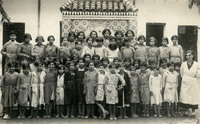
The symposium is part of the year long commemoration of the 20th anniversary of the opening of the Museum. Co-organized through the Sephardic Studies Initiative of the University of Washington's Samuel & Althea Stroum Jewish Studies Program and the Museum's Center for Advanced Holocaust Studies, this symposium explores the unique history of Sephardic Jewry and the Holocaust.
Professor Baer will present The Voids of the Sephard: the Memory of the Holocaust in Spain.
Abstract of Dr. Baer's Paper:
The Holocaust did not take place within Spain's borders. Isolated and detached from the tragedy that consumed the rest of the European continent, Spain at that time was essentially submerged in the trauma of her own Civil War and its aftermath. When Spain finally emerged from the grip of Franco's dictatorship, the country's democracy was rebuilt on the margins of the prevailing European value system, in which the memory of Auschwitz and its ilk occupy a central place. It is only in the last decade, as a consequence of both institutional initiatives and the effects of cultural and educational transnationalization, that Spain has been progressively absorbed into the wider European debate about history, culture, and memory. As a result, discussions about the Holocaust have gained a more significant presence in Spanish public life. The process is an arduous one because it requires Spain to liberate itself from the shackles of its own past, specifically from the mantle of ignorance and prejudice that, until very recently, has covered everything related to Jews.
More information on the symposium can be found by clicking here.
April 28-30, 2013
University of Washington, Seattle

The symposium is part of the year long commemoration of the 20th anniversary of the opening of the Museum. Co-organized through the Sephardic Studies Initiative of the University of Washington's Samuel & Althea Stroum Jewish Studies Program and the Museum's Center for Advanced Holocaust Studies, this symposium explores the unique history of Sephardic Jewry and the Holocaust.
Professor Baer will present The Voids of the Sephard: the Memory of the Holocaust in Spain.
Abstract of Dr. Baer's Paper:
The Holocaust did not take place within Spain's borders. Isolated and detached from the tragedy that consumed the rest of the European continent, Spain at that time was essentially submerged in the trauma of her own Civil War and its aftermath. When Spain finally emerged from the grip of Franco's dictatorship, the country's democracy was rebuilt on the margins of the prevailing European value system, in which the memory of Auschwitz and its ilk occupy a central place. It is only in the last decade, as a consequence of both institutional initiatives and the effects of cultural and educational transnationalization, that Spain has been progressively absorbed into the wider European debate about history, culture, and memory. As a result, discussions about the Holocaust have gained a more significant presence in Spanish public life. The process is an arduous one because it requires Spain to liberate itself from the shackles of its own past, specifically from the mantle of ignorance and prejudice that, until very recently, has covered everything related to Jews.
More information on the symposium can be found by clicking here.
Thursday, April 18, 2013
Special Screening The Heart of a Mother: Susette's Story
Sunday April 28th, 6:30 p.m.
Sabes Jewish Community Center
$5 donation requested.
Dessert reception to follow in honor of: Susette Liepmannssohn Freund
Presented by the Children of Holocaust Survivors in Minnesota (CHAIM)
The Heart of a Mother: Susette's Story: A Film by Rod Martel
Like so many refugee families from Nazi Germany, Rod Martel's experience was typical, if that is the word you can use for the horror visited upon a generation of German Jews. While many of his relatives perished, his parents barely escaped to start a normal life in the United States. His fraternal grandparents fled to Australia, but he always wondered exactly what had happened to his maternal grandmother, Susette, (ex-wife of cinematographer/director Karl Freund) who had been swallowed up by the Nazi war machine.
Supposedly she had died of typhus at Ravensbrück concentration camp. With the help of two researchers, Rod and his wife, accompany 93 year old Gerda, (Susette's daughter) back to Berlin.
Follow them on their journey back into the past as they discover a truth even more evil than they had imagined in their quest to infuse meaning into a world that seems to defy logic and decency.
Rod Martel is a member of CHAIM, and dedicated to educating others about his family's experience during the Holocaust.
Sabes Jewish Community Center
$5 donation requested.
Dessert reception to follow in honor of: Susette Liepmannssohn Freund
Presented by the Children of Holocaust Survivors in Minnesota (CHAIM)
The Heart of a Mother: Susette's Story: A Film by Rod Martel
Like so many refugee families from Nazi Germany, Rod Martel's experience was typical, if that is the word you can use for the horror visited upon a generation of German Jews. While many of his relatives perished, his parents barely escaped to start a normal life in the United States. His fraternal grandparents fled to Australia, but he always wondered exactly what had happened to his maternal grandmother, Susette, (ex-wife of cinematographer/director Karl Freund) who had been swallowed up by the Nazi war machine.
Supposedly she had died of typhus at Ravensbrück concentration camp. With the help of two researchers, Rod and his wife, accompany 93 year old Gerda, (Susette's daughter) back to Berlin.
Follow them on their journey back into the past as they discover a truth even more evil than they had imagined in their quest to infuse meaning into a world that seems to defy logic and decency.
Rod Martel is a member of CHAIM, and dedicated to educating others about his family's experience during the Holocaust.
Labels:
Community Events,
Film,
Holocaust,
Ravensbruck
Wednesday, April 17, 2013
Twin Cities showing of new Holocaust film No Place on Earth
April 26th - May 2nd
Landmark's Edina Cinema
3911 West 50th Street - Edina, MN
No Place on Earth
In 1996, Chris Nicola, an ex-NYC cop and world-renowned cave explorer, makes a discovery deep underground in the largest cave system in the Ukraine. Buttons, shoes, a key and names scrawled on the cave wall, are mute testimonies to what happened here long ago. The story that Nicola has stumbled upon begins in 1942, when Ukrainian authorities, in conjunction with the Nazi occupiers, begin rounding up the Jews for deportation to concentration camps. Encouraged by one mother's burning wish to save her children, five families defy the soldiers and descend into the eerie cave system outside of their town. It is the beginning of a 544 day odyssey into a dark, damp maze and never-ending night. No Place On Earth recounts the longest recorded underground survival in human history.
I
Landmark's Edina Cinema
3911 West 50th Street - Edina, MN
No Place on Earth
In 1996, Chris Nicola, an ex-NYC cop and world-renowned cave explorer, makes a discovery deep underground in the largest cave system in the Ukraine. Buttons, shoes, a key and names scrawled on the cave wall, are mute testimonies to what happened here long ago. The story that Nicola has stumbled upon begins in 1942, when Ukrainian authorities, in conjunction with the Nazi occupiers, begin rounding up the Jews for deportation to concentration camps. Encouraged by one mother's burning wish to save her children, five families defy the soldiers and descend into the eerie cave system outside of their town. It is the beginning of a 544 day odyssey into a dark, damp maze and never-ending night. No Place On Earth recounts the longest recorded underground survival in human history.
I
Labels:
Cave,
Community Events,
Film,
Holocaust,
Ukraine
Hiromi Mizuno professor in the Department of History to present at next CHGS workshop
Workshop for Graduate Students and Faculty Holocaust, Genocide and Mass Violence Studies
Thursday, April 25:
3:30-5:00 p.m. 710 Social Sciences
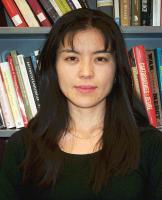
"When Crimes Cannot Be Punished: the Comfort Women Issue and International Human Rights Law"
Hiromi Mizuno, Associate Professor, Department of History and CHGS advisory board member will present on her latest research.
If you are interested in participating in the workshop please contact Shannon Golden at golde118@umn.edu.
Remaining Workshop Schedule:
May 3: Friday, 12:00-1:30 p.m. (710 Social Sciences)
Courtney Gildersleeve
May 9: Thursday, 3:30-5:00 p.m. (710 Social Sciences)
Eric Harkleroad
Thursday, April 25:
3:30-5:00 p.m. 710 Social Sciences

"When Crimes Cannot Be Punished: the Comfort Women Issue and International Human Rights Law"
Hiromi Mizuno, Associate Professor, Department of History and CHGS advisory board member will present on her latest research.
If you are interested in participating in the workshop please contact Shannon Golden at golde118@umn.edu.
Remaining Workshop Schedule:
May 3: Friday, 12:00-1:30 p.m. (710 Social Sciences)
Courtney Gildersleeve
May 9: Thursday, 3:30-5:00 p.m. (710 Social Sciences)
Eric Harkleroad
Labels:
"Holocaust and Genocide studies",
CHGS,
homepage
98th Anniversary Commemoration of the Armenian Genocide
Wednesday, April 24
7:00 p.m.
St. Sahag Armenian Church
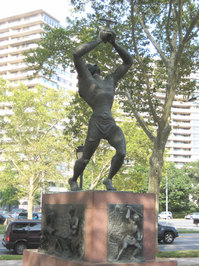
The Armenian Cultural Organization of Minnesota in conjunction with St. Sahag Armenian Church will be observing the 98th anniversary commemoration of the Genocide. This year's theme is one of renewal ("the Armenian phoenix") as we look towards the end of a century of genocide and a greater understanding of human rights for all.
Remarks by Alejandro Baer, music and readings.
Free and open to the public.
For more on the Armenian genocide visit the Armenian CHGS page.
7:00 p.m.
St. Sahag Armenian Church

The Armenian Cultural Organization of Minnesota in conjunction with St. Sahag Armenian Church will be observing the 98th anniversary commemoration of the Genocide. This year's theme is one of renewal ("the Armenian phoenix") as we look towards the end of a century of genocide and a greater understanding of human rights for all.
Remarks by Alejandro Baer, music and readings.
Free and open to the public.
For more on the Armenian genocide visit the Armenian CHGS page.
Monday, April 8, 2013
Doctoral Research Fellow at the Center for Austrian Studies, Matthias Falter to present at next CHGS workshop
The "Antifascist consensus" and the "club of political correctness." Addressing National Socialism in Austrian parliamentary debates on right-wing extremism
Interdisciplinary Workshop for Graduate Students and Faculty Holocaust, Genocide and Mass Violence Studies
Thursday, April 11
3:30-5:00 p.m.
609 Social Sciences
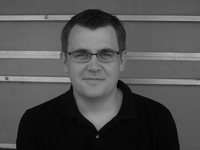
Matthias Falter is political scientist and BMWF Doctoral Research Fellow at the Center for Austrian Studies of the University of Minnesota. His main fields of research are political theory, especially Critical Theory and the political thought of Hannah Arendt, historic and contemporary antisemitism, right-wing extremism and parliamentarianism. In his dissertation, Matthias Falter examines Austrian parliamentary discourse on right-wing extremism and underlying concepts of political community. On Thursday, he will talk about the memory of National Socialism as point of reference in contemporary Austrian parliamentary debates on right-wing extremism and the related struggles over politics of remembrance.
If you are interested in participating in the workshop please contact Shannon Golden at golde118@umn.edu.
Remaining Workshop Schedule:
April 25: Thursday, 3:30-5:00 p.m. (710 Social Sciences)
Hiromi Mizuno, "When Crimes Cannot Be Punished: the Comfort Women Issue and International Human Rights Law"
May 3: Friday, 12:00-1:30 p.m. (710 Social Sciences)
Courtney Gildersleeve
May 9: Thursday, 3:30-5:00 p.m. (710 Social Sciences)
Eric Harkleroad
Interdisciplinary Workshop for Graduate Students and Faculty Holocaust, Genocide and Mass Violence Studies
Thursday, April 11
3:30-5:00 p.m.
609 Social Sciences

Matthias Falter is political scientist and BMWF Doctoral Research Fellow at the Center for Austrian Studies of the University of Minnesota. His main fields of research are political theory, especially Critical Theory and the political thought of Hannah Arendt, historic and contemporary antisemitism, right-wing extremism and parliamentarianism. In his dissertation, Matthias Falter examines Austrian parliamentary discourse on right-wing extremism and underlying concepts of political community. On Thursday, he will talk about the memory of National Socialism as point of reference in contemporary Austrian parliamentary debates on right-wing extremism and the related struggles over politics of remembrance.
If you are interested in participating in the workshop please contact Shannon Golden at golde118@umn.edu.
Remaining Workshop Schedule:
April 25: Thursday, 3:30-5:00 p.m. (710 Social Sciences)
Hiromi Mizuno, "When Crimes Cannot Be Punished: the Comfort Women Issue and International Human Rights Law"
May 3: Friday, 12:00-1:30 p.m. (710 Social Sciences)
Courtney Gildersleeve
May 9: Thursday, 3:30-5:00 p.m. (710 Social Sciences)
Eric Harkleroad
Sunday, April 7, 2013
Scripting the Shoah: The Holocaust in Moroccan Official and Public Discourses
Aomar Boum, Assistant Professor, School of Middle Eastern and North African Studies and Religious studies Program, University of Arizona
April 11, 2013
Room 1210 Heller Hall
5:30 p.m.
-thumb-200x281-150966.jpg)
Since the end of WWII, the Holocaust has been a prominent issue in Arab political and intellectual discourse. Although this issue has largely played out in Egypt, Syria and Lebanon, it has also been an integral part of the North African debate in general and the Moroccan anti-Israeli and Zionist discussions in particular by the early years of Independence.
Using archival material and ethnographic interviews, Professor Boum will argue that North African and Moroccan perspectives about the Holocaust are part of what he calls the durable structures of acceptance and minimization. Using Bourdieu's habitus, Boum claims that Moroccan debates about the Holocaust have been framed and ossified in a context of social and political pre-dispositions of minimization of the Holocaust generating typological and conflicting scripts. Therefore, when individuals go against the grain and question this habitus, they are perceived as going against the principles of regular continuity that has governed the Arab/Moroccan critique of Israeli policies towards Palestinians.
Dr. Aomar Boum was born and raised in the oasis of Mhamid, Foum Zguid (Province of Tata, southern Morocco). As a socio-cultural anthropologist, his main research focuses on how Moroccan Muslims remember, picture, and construct Jewishness and Moroccan Judaism. Dr. Boum has written a number of entries on the Jews of southern Morocco in The Encyclopedia of Jews in the Islamic World; he also published on ethnic folk dances and nationalism, traditional Islamic and modern education, as well as on hip-hop and youth dissent in Morocco, and youth culture.
Sponsored by: The Center for Holocaust and Genocide Studies and the Center for Jewish Studies, Institute for Advanced Studies.
April 11, 2013
Room 1210 Heller Hall
5:30 p.m.
-thumb-200x281-150966.jpg)
Since the end of WWII, the Holocaust has been a prominent issue in Arab political and intellectual discourse. Although this issue has largely played out in Egypt, Syria and Lebanon, it has also been an integral part of the North African debate in general and the Moroccan anti-Israeli and Zionist discussions in particular by the early years of Independence.
Using archival material and ethnographic interviews, Professor Boum will argue that North African and Moroccan perspectives about the Holocaust are part of what he calls the durable structures of acceptance and minimization. Using Bourdieu's habitus, Boum claims that Moroccan debates about the Holocaust have been framed and ossified in a context of social and political pre-dispositions of minimization of the Holocaust generating typological and conflicting scripts. Therefore, when individuals go against the grain and question this habitus, they are perceived as going against the principles of regular continuity that has governed the Arab/Moroccan critique of Israeli policies towards Palestinians.
Dr. Aomar Boum was born and raised in the oasis of Mhamid, Foum Zguid (Province of Tata, southern Morocco). As a socio-cultural anthropologist, his main research focuses on how Moroccan Muslims remember, picture, and construct Jewishness and Moroccan Judaism. Dr. Boum has written a number of entries on the Jews of southern Morocco in The Encyclopedia of Jews in the Islamic World; he also published on ethnic folk dances and nationalism, traditional Islamic and modern education, as well as on hip-hop and youth dissent in Morocco, and youth culture.
Sponsored by: The Center for Holocaust and Genocide Studies and the Center for Jewish Studies, Institute for Advanced Studies.
Illumintated Memory
A group exhibition of student artwork on Holocaust remembrance organized by Kathy Carlisle, Visual Arts Instructor at St. Francis High School in Sacramento,California.
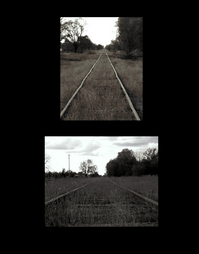
Exhibition Dates
April 2 - 13, 2013
Public Reception
Friday, April 12, 6:00 - 8:00 pm
Quarter Gallery, Regis Center for Art
Gallery hours are 11 am to 7 pm, Tuesday through Saturday.
The project showcases the collective work of Photography One and Two students at St. Francis High School during the Spring semester, 2012. This conceptual photography assignment required students to engage in historical research about the Holocaust and to create symbolic photographic imagery in response to their research. An exploration of artists employing symbolism, metaphor, and allegory in historical and contemporary art established the foundation of the project. Students then began their work by expanding their knowledge of the Holocaust from 1933 to 1945 through personal and collaborative research and class assignments.
The students' creative challenges began as they refined their research to focus on a single personal narrative from a survivor or someone who had perished in the Holocaust. They were asked to personally assess and symbolize the essence of that single person's story through photographic imagery. Students were limited to a palette of sepia or black and white photography, using only tonal value to describe the depth and breadth of their concept. The final step of the project required students to write an artist's statement about their work, explaining their creative process and its connection to their research.
Illuminated Memory is an outstanding educational model for linking historical study and artistic interpretation in remembrance of the Holocaust. This project demonstrates the vital and expansive role that visual art can play in the education and ethical development of high school students. Writing about her teaching methods, Kathy Carlisle observed, "the Holocaust teaches us indelible lessons about racism that are highly relevant today. Students resonate strongly with core moral choices and social justice lessons that the tragedy of the Holocaust teaches us. Linking art to social justice issues allows students to reciprocally connect their studies in language, history, and ethics to their work in visual media."
Students in the exhibition include: Liz Arikawa, Brinnley Barthels, Theresa Bersin, Maddy Boone, Ryanne Brust, Valerie Calhoun, Carly Carpenter, Sidney Castro, Alexey Chandler, Sara Cherazi, Anna Dahl, Kylee Espena, Alicia Flynt, Eileen Frame, Karly Hammack, Katie Garnett, Chloe Hakim, Jacqueline Holben, Grace Hollingsworth, Sarah Huber, Sameenah Khan, Jordanne Kirschke, Ellie Keenan, Rachel Kornelly, Petie Kuppenbender, Meghan Lawrence, Nhi Le, Mollie Leal, Harkie Mand, Alison Marchi, Rachel Merkle, Macee Moreno, Hibba Munir, Anya Musilli-Olmsted, Bianca Quiroz, Nicole Read, Meghan Rice, Gabriela Riegos, Sophia Rubino, Noelle Santana, Pilar Sbisa, Amanda Schnabel, Jatika Singh, Marcela Sosa, Natalie Vann, Maxi Wilson, A.J. Woo.
Kathy Carlisle, a Visual Arts Instructor at St. Francis High School in Sacramento, California, led this project and organized the exhibition. She died unexpectedly on December 8, 2012 when she was struck by a train while taking photographs. Kathy Carlisle studied at the Parsons School of Design in New York and at the School of the Art Institute of Chicago and completed B.A. and M.A. degrees at California State University, Sacramento. In 2012 she received a fellowship to attend the Summer Seminar on Holocaust Education at the Memorial Library in New York. This presentation at the University of Minnesota is dedicated to the life and legacy of Kathy Carlisle.
For more on the project please click here.
Sponsored by: Art, Katherine E. Nash Gallery,Center for Holocaust & Genocide Studies, Central Valley Holocaust Educators Network and St. Francis High School of Sacramento, CA.

Exhibition Dates
April 2 - 13, 2013
Public Reception
Friday, April 12, 6:00 - 8:00 pm
Quarter Gallery, Regis Center for Art
Gallery hours are 11 am to 7 pm, Tuesday through Saturday.
The project showcases the collective work of Photography One and Two students at St. Francis High School during the Spring semester, 2012. This conceptual photography assignment required students to engage in historical research about the Holocaust and to create symbolic photographic imagery in response to their research. An exploration of artists employing symbolism, metaphor, and allegory in historical and contemporary art established the foundation of the project. Students then began their work by expanding their knowledge of the Holocaust from 1933 to 1945 through personal and collaborative research and class assignments.
The students' creative challenges began as they refined their research to focus on a single personal narrative from a survivor or someone who had perished in the Holocaust. They were asked to personally assess and symbolize the essence of that single person's story through photographic imagery. Students were limited to a palette of sepia or black and white photography, using only tonal value to describe the depth and breadth of their concept. The final step of the project required students to write an artist's statement about their work, explaining their creative process and its connection to their research.
Illuminated Memory is an outstanding educational model for linking historical study and artistic interpretation in remembrance of the Holocaust. This project demonstrates the vital and expansive role that visual art can play in the education and ethical development of high school students. Writing about her teaching methods, Kathy Carlisle observed, "the Holocaust teaches us indelible lessons about racism that are highly relevant today. Students resonate strongly with core moral choices and social justice lessons that the tragedy of the Holocaust teaches us. Linking art to social justice issues allows students to reciprocally connect their studies in language, history, and ethics to their work in visual media."
Students in the exhibition include: Liz Arikawa, Brinnley Barthels, Theresa Bersin, Maddy Boone, Ryanne Brust, Valerie Calhoun, Carly Carpenter, Sidney Castro, Alexey Chandler, Sara Cherazi, Anna Dahl, Kylee Espena, Alicia Flynt, Eileen Frame, Karly Hammack, Katie Garnett, Chloe Hakim, Jacqueline Holben, Grace Hollingsworth, Sarah Huber, Sameenah Khan, Jordanne Kirschke, Ellie Keenan, Rachel Kornelly, Petie Kuppenbender, Meghan Lawrence, Nhi Le, Mollie Leal, Harkie Mand, Alison Marchi, Rachel Merkle, Macee Moreno, Hibba Munir, Anya Musilli-Olmsted, Bianca Quiroz, Nicole Read, Meghan Rice, Gabriela Riegos, Sophia Rubino, Noelle Santana, Pilar Sbisa, Amanda Schnabel, Jatika Singh, Marcela Sosa, Natalie Vann, Maxi Wilson, A.J. Woo.
Kathy Carlisle, a Visual Arts Instructor at St. Francis High School in Sacramento, California, led this project and organized the exhibition. She died unexpectedly on December 8, 2012 when she was struck by a train while taking photographs. Kathy Carlisle studied at the Parsons School of Design in New York and at the School of the Art Institute of Chicago and completed B.A. and M.A. degrees at California State University, Sacramento. In 2012 she received a fellowship to attend the Summer Seminar on Holocaust Education at the Memorial Library in New York. This presentation at the University of Minnesota is dedicated to the life and legacy of Kathy Carlisle.
For more on the project please click here.
Sponsored by: Art, Katherine E. Nash Gallery,Center for Holocaust & Genocide Studies, Central Valley Holocaust Educators Network and St. Francis High School of Sacramento, CA.
Labels:
"Art Exhibition",
Holocaust,
homepage,
Photography
Monday, April 1, 2013
CHGS Announces Symposium on Representation of Genocide
Representing Genocide: Media, Law and Scholarship
April 5 & 6, 2013
Mondale Hall -The Law School
Friday, April 5, 9:00 a.m.- 6:00 p.m. Room 20
Saturday, April 6, 9:00 a.m. -3:30 p.m. Room 50
Free and open to the public. Registration closed. Walk ins welcome, space is limited. Registration on Friday between 9:00 a.m. and 9:30.
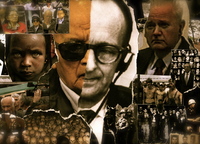
The symposium will address journalistic, judicial and social scientific depictions of atrocities with a focus on cases of the Holocaust, Darfur, and Rwanda. It seeks to explore the intersections between these different discursive fields and case studies to shed light on the increasing tension between the local and global representations and memories of mass murder.
The particular ways in which current genocides are represented have critical consequences for the responses and interventions offered by the rest of the world. This has been evident in both Darfur and Rwanda, where the framing of the events and the labels and definitions used by the media and scholarship to describe them (such as "tribal violence") had a detachment effect and did not favor any sort of intervention to halt the atrocities. Reversely, references to the Holocaust in the representation of contemporary mass atrocities--so-called "metaphorical bridging"--can also crucially impact the process of intervention, as the case of Bosnia has demonstrated.
Few attempts have been made to specifically highlight the connection between representations of past mass atrocities and their actual impact on unfolding events of mass violence. An examination of this urgent question is an essential component of global progress towards human rights goals and the prevention or reduction of future political violence. Moreover, while there is an important body of work on Holocaust memory as such, the symposium will explore when and how promoting public awareness and memory of mass atrocities through distinct institutions (the media, the judiciary and academic scholarship) can lead to effective anti-genocide policies.
Conference Organizers:
Alejandro Baer, Director and Stephen C. Feinstein Chair Center for Holocaust and Genocide Studies, University of Minnesota
Joachim Savelsberg, Professor of Sociology, University of Minnesota
Participating Scholars:
Fredrico Finchelstein, Associate Professor of History at the New School for Social Research and Eugene Lang College
John Hagan, John D. MacArthur Professor, Northwestern University
Jens Meierhenrich, Senior Lecturer in International Relations, London School of Economics and Political Science, LSE/ Princeton University
Bella Mody, James de Castro Chair in Global Media Studies, Journalism and Mass Communication, University of Colorado
Mark Osiel, Aliber Family Chair in Law, University of Iowa
Devin Pendas, Associate Professor History, Boston College
Natan Sznaider, Professor of Sociology, Academic College of Tel-Aviv-Yaffo
Allan Thompson, Assistant Professor Journalism and Communication, Carleton University
Schedule: Schedule_Symposium Representing Genocide (1).pdf
The Symposium is made possible by the Wexler Special Events fund for Holocaust and Genocide Studies.
Sponsored by: Center for Austrian Studies, Center for German and European Studies, European Studies Consortium, the Human Rights Program, Institute for Global Studies, School of Journalism and Mass Communication, Center for the Study of Media Ethics and Law, Human Rights Center at the Law School, Department of Sociology, Department of German Scandinavian & Dutch, Department of Spanish and Portuguese, Center for Jewish Studies, Department of History.
April 5 & 6, 2013
Mondale Hall -The Law School
Friday, April 5, 9:00 a.m.- 6:00 p.m. Room 20
Saturday, April 6, 9:00 a.m. -3:30 p.m. Room 50
Free and open to the public. Registration closed. Walk ins welcome, space is limited. Registration on Friday between 9:00 a.m. and 9:30.

The symposium will address journalistic, judicial and social scientific depictions of atrocities with a focus on cases of the Holocaust, Darfur, and Rwanda. It seeks to explore the intersections between these different discursive fields and case studies to shed light on the increasing tension between the local and global representations and memories of mass murder.
The particular ways in which current genocides are represented have critical consequences for the responses and interventions offered by the rest of the world. This has been evident in both Darfur and Rwanda, where the framing of the events and the labels and definitions used by the media and scholarship to describe them (such as "tribal violence") had a detachment effect and did not favor any sort of intervention to halt the atrocities. Reversely, references to the Holocaust in the representation of contemporary mass atrocities--so-called "metaphorical bridging"--can also crucially impact the process of intervention, as the case of Bosnia has demonstrated.
Few attempts have been made to specifically highlight the connection between representations of past mass atrocities and their actual impact on unfolding events of mass violence. An examination of this urgent question is an essential component of global progress towards human rights goals and the prevention or reduction of future political violence. Moreover, while there is an important body of work on Holocaust memory as such, the symposium will explore when and how promoting public awareness and memory of mass atrocities through distinct institutions (the media, the judiciary and academic scholarship) can lead to effective anti-genocide policies.
Conference Organizers:
Alejandro Baer, Director and Stephen C. Feinstein Chair Center for Holocaust and Genocide Studies, University of Minnesota
Joachim Savelsberg, Professor of Sociology, University of Minnesota
Participating Scholars:
Fredrico Finchelstein, Associate Professor of History at the New School for Social Research and Eugene Lang College
John Hagan, John D. MacArthur Professor, Northwestern University
Jens Meierhenrich, Senior Lecturer in International Relations, London School of Economics and Political Science, LSE/ Princeton University
Bella Mody, James de Castro Chair in Global Media Studies, Journalism and Mass Communication, University of Colorado
Mark Osiel, Aliber Family Chair in Law, University of Iowa
Devin Pendas, Associate Professor History, Boston College
Natan Sznaider, Professor of Sociology, Academic College of Tel-Aviv-Yaffo
Allan Thompson, Assistant Professor Journalism and Communication, Carleton University
Schedule: Schedule_Symposium Representing Genocide (1).pdf
The Symposium is made possible by the Wexler Special Events fund for Holocaust and Genocide Studies.
Sponsored by: Center for Austrian Studies, Center for German and European Studies, European Studies Consortium, the Human Rights Program, Institute for Global Studies, School of Journalism and Mass Communication, Center for the Study of Media Ethics and Law, Human Rights Center at the Law School, Department of Sociology, Department of German Scandinavian & Dutch, Department of Spanish and Portuguese, Center for Jewish Studies, Department of History.
Subscribe to:
Comments (Atom)
© Regents of the University of Minnesota. All rights reserved. Equal opportunity educator and employer.